By Lori Hanson
Insomnia is something that over 50% of American adults deal with. Can’t get to sleep, can’t stay asleep. The most productive time of day starts at 5pm and you’re a night owl.
American Psychological Association’s Annual Stress in America Poll reports that 52% of Americans suffer from sleeplessness and 53% of Adults report feeling fatigued. Combine that with the fact that over 90% of the complaints in the doctor’s office are stress related and it’s easy to see why.
Our bodies and brains need sleep. Our bodies have a nightly maintenance cycle that is affected if you don’t get sufficient rest. The organs work and do repairs while we sleep.
Here’s the schedule of nighttime maintenance/repair cycle according to Chinese medicine:
 9pm – 11pm Thyroid
9pm – 11pm Thyroid
11pm – 1am gallbladder
1am – 3pm Liver
3 am – 5am Lung
5am – 7am Large Intestine
Have you ever woken up about 2am with sweats after having a lot to drink? It’s because your liver is processing the extra alcohol (layman’s terms). It happens more after you turn forty!
For many years I was a light sleeper—anything and everything woke me up. By my mid-thirties I was a huge insomniac. I couldn’t get to sleep without the noise of the TV and I would wake several times during the night or early in the morning. My insomnia was so bad, I wrote and recorded a song about it called “Insomniac” Take a listen
Several things contributed to my insomnia which are common:
1. Stress from work
2. Stress from personal relationships (following a divorce)
3. Low serotonin
4. Not knowing or using relaxation skills to quiet my brain.
By studying ways to create more peace and balance, I found the keys to changing my sleep from that of a very light sleeper to literally sleeping like a log. I easily go to sleep. I don’t wake up during the night and I wake up refreshed and ready for the day. If I do wake during the night in winter when Sasha wants out, I go right back to sleep. Something I could never do before.
Here’s six tips to help you deal with insomnia you may be experiencing:

1. Get into the habit of clearing your mind before you sleep
Sit on the floor with legs crossed (lotus style) Relax your mind by taking 7-10 deep breaths. Slowly inhale to the count of five. Slowly exhale and repeat the word “Relax” three times as you exhale. Repeat 7-10 times.
2. Don’t stimulate your mind before sleep
Turn off the computer, phone and anything on TV that may get you wound up at least thirty minutes before you plan to crash. Start a new bedtime ritual, make some hot tea, take a hot bath or read a book to help you get tired.
3. As you lay your head on your pillow think positive thoughts
This is not the time to think about everything you didn’t do, should have done, or what you screwed up. Your subconscious (habitual mind) doesn’t sleep. Whatever you’re thinking about is what it works on all night. Give it positive thoughts and images to work on for you. This is also the best time to repeat and visualize affirmations.
4. Create a list of your priorities for the next day before bed
This aids #3, by preparing the list of things you will do when you wake and the order and time you will do them. When you wake your subconscious is ready and helps you execute the tasks, you’ll have them done in no time. This adds to your productivity and gives you more time in your day.
5. Increase your serotonin
Most people dealing with insomnia have low serotonin. If you’re interested in finding out if your’s is low, contact me and I’ll send you a questionnaire that will help us determine how depleted it is. This is a big factor that contributes to insomnia. You don’t need sleeping pills. Sleeping pills are a band-aid and do not improve your levels of serotonin.
6. Start the practice of meditation
This is by far the biggest thing that helped me to overcome my insomnia. There are many forms to use. I use and highly recommend Holosync that is technology based. You can also pick up guided meditation CDs and use those before you sleep.
Dealing with insomnia is about clearing your head from thoughts that keep you awake. And getting your brain chemistry back in balance. Once the fuel tank is full, you too can sleep just like a baby.
For more help with insomnia, contact us.
©2013

